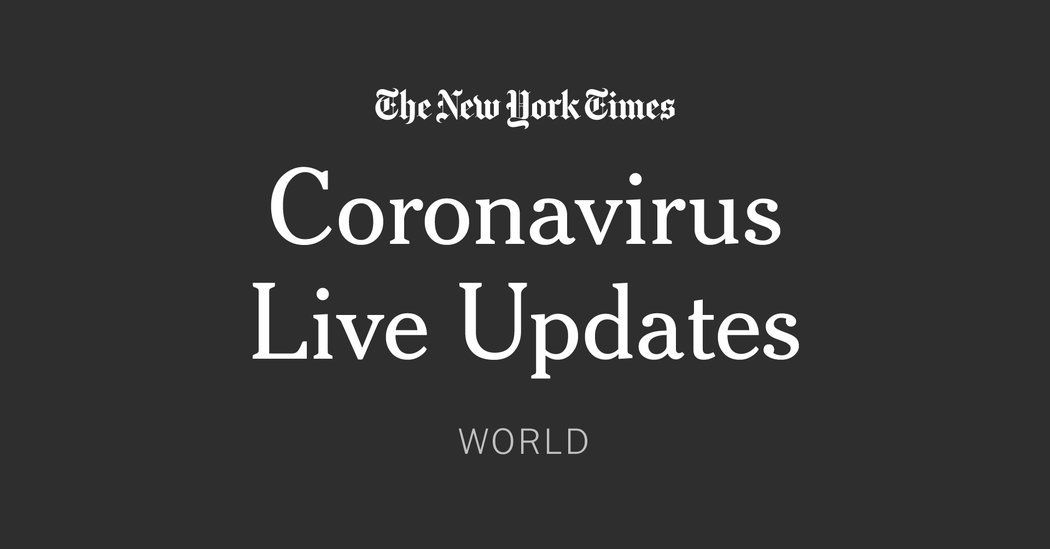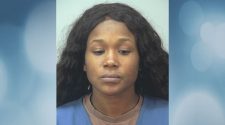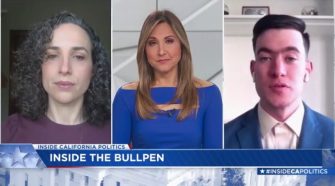Virus-related deaths in Britain may be 10 percent higher than the official toll.
Britain, with the fastest-growing outbreak in western Europe, has understated the human and economic cost of the coronavirus, according to new information released on Tuesday.
The government’s Office of National Statistics released figures indicating that deaths could be at least 10 percent higher than the official toll — 12,107 as of Tuesday — which does not take into account many people who die in nursing homes or at home.
More than 2,000 nursing homes, about 13 percent of the country’s total, have had coronavirus cases, said Dr. Chris Whitty, the government’s chief medical adviser. Workers in many of the homes have complained of an acute shortage of protective gear.
Care England, a charity representing independent care agencies, has estimated that nearly 1,000 Covid-19 deaths in nursing homes have gone uncounted. Two major home operators have reported 521 deaths in recent days, many of which are not yet included in official totals.
Critics say the government has focused on shoring up the National Health Service and its hospitals, neglecting the nursing home industry.
The financial outlook in Britain, which has almost 94,000 confirmed coronavirus cases, also darkened on Tuesday. The Office for Budget Responsibility, a fiscal watchdog group, said the country’s lockdown could shrink the economy by 35 percent in the second quarter, erasing 2 million jobs.
The government has been criticized for being slow to lock down the country, and for not providing more testing and more protective gear.
The undercounting of deaths in Britain, which had almost 94,000 confirmed coronavirus infections by Tuesday, parallels those in other countries, where many deaths outside of hospitals have not been included in the official counts.
One hint at the true toll comes from the number of deaths from all causes. In the week of March 28 to April 3, more than 16,000 people died in Britain — about 6,000 more than average for the time of year.
Slowly, tentatively, a handful of European countries began lifting constraints on daily life this week for the first time since the start of the coronavirus crisis, providing an early litmus test of whether Western democracies can gingerly restart their economies and restore basic freedoms without reviving the spread of the disease.
On Tuesday, Italy, the epicenter of Europe’s crisis, reopened some bookshops and children’s clothing stores. Spain allowed workers to return to factories and construction sites, despite a daily death toll that remains over 500. Austria allowed thousands of hardware and home improvement stores to reopen, as long as workers and customers wore masks.
In Denmark, elementary schoolteachers readied classrooms so young children could return to school on Wednesday, while in the Czech Republic, a restless public relished the reopening of sports centers and some shops.
When Lukas Zachoval, a sales manager in the Czech Republic, lost a tennis match to his father this week — in a 6-4, 6-3 drubbing — defeat had seldom tasted sweeter. After all, it was his first match since the Czech government began lifting sweeping restrictions on society, including a ban on communal sports, that had been in place for nearly a month.
The easing of the lockdowns was watched with interest and trepidation across Europe and beyond, and posed profound and knotty questions. Among them: Now that the rate of infection has ebbed in several countries, to what extent should political leaders prioritize concern for public health over worries about the economy?
The moves to loosen restrictions came despite a warning a week earlier by the World Health Organization’s regional director for Europe, Hans Kluge, who said, “Now is not the time to relax measures.”
The fledgling, country-by-country loosening, enacted without any coordination between nations, underscored the absence of any common agreement, or even understanding, about the challenge of keeping economies alive while stemming the disease.
When Guayaquil, Ecuador’s business capital, was first hit by the coronavirus, the devastation was so great that bodies were piling up in the streets.
Now, as authorities begin to grapple with the scale of the crisis, they have reason to believe that the toll for the province that includes Guayaquil is likely many times larger than the official government figure of 173 dead.
The numbers are skewed because only those who test positive — dead or alive — are counted as coronavirus victims.
The usually bustling port city of about three million had 1,500 more deaths in March of this year than in the same month in 2019, Guayaquil’s mayor, Cynthia Viteri, said in an interview.
“They are not only dying from Covid,” she said, referring to the disease caused by coronavirus. “People with diabetes, hypertension, heart disease are dying from lack of medical attention, because the hospitals are saturated with the critically ill, because there aren’t places where women can give birth without getting infected.”
In addition, in the past two weeks, a special emergency team collected or authorized the burial of nearly 1,900 bodies from Guayaquil’s hospitals and homes, according to Ecuador’s government, which said that figure represented a fivefold increase in the city’s usual mortality rate.
To combat the spread of the virus, the city will resort to some of the most draconian quarantine measures in Latin America.
Security forces on Tuesday will begin cordoning off the contagion hot spots for up to three days at a time while medics go door to door looking for potential cases and sanitary workers disinfect public spaces.
Ms. Viteri, the mayor, said movement to and from the hard-hit neighborhoods, located mostly in the city’s poor periphery, will be completely cut off. City authorities will provide residents with food while the operation lasts.
“The situation isn’t grave — it’s extremely grave,” said Ms. Viteri. “And we still haven’t reached a high point of infections in Guayaquil.”
President Trump on Tuesday said that he planned to stop United States funding of the World Health Organization while reviewing its role in what he described as “severely mismanaging and covering up the spread of the coronavirus.”
The announcement came as Mr. Trump continued to be angered by criticism of his response to the pandemic and as he sought to gain credit for how he has performed. “Everybody knows what is going on there,” he said, blaming the organization for what he described as a “disastrous decision to oppose travel restrictions from China and other nations.”
Mr. Trump has repeatedly pointed to his decision to impose travel restrictions on China as proof that he responded early to warnings about the dangers of the coronavirus.
He said that decision saved “thousands and thousands of lives,” and the W.H.O. “fought us.” The president blamed the organization for a “20-fold” increase in cases worldwide.
As recently as February, the W.H.O. had advised against imposing travel restrictions to places with outbreaks of the coronavirus, saying it was not an effective way combat its spread.
On Tuesday, the president said the organization “willingly took China’s assurances” and that it “defended the actions of the Chinese government, even praising its so-called transparency.”
Mr. Trump has been defensive about his decision to institute early travel restrictions on China, crediting himself with saving hundreds of thousands of lives while sustaining criticism for being xenophobic and racist.
But Mr. Trump has not addressed his administration’s inaction after that decision and the gap in the timeline of his response between the travel restrictions announced on Jan. 31 and the declaration of a national emergency on March 13.
Confusing Chinese regulations are delaying face mask exports.
Chinese exports of much-needed N95 respirators, surgical masks and other personal protection equipment were delayed for a fourth day on Tuesday as China’s customs agency left unresolved a crucial regulatory issue.
As a result, millions of masks, thousands ventilators and other equipment have sat on factory floors for days or weeks, waiting for clearance. Planes chartered to take gear to the United States have waited, empty, at Chinese airports.
At the same time, some American officials say that reliance on Chinese supplies — even acceptance of gifts from China — supports Beijing’s propaganda efforts.
Customs offices have interpreted the new rule as requiring both factory certification and quality inspection. Few medical supplies meet both standards.
At a monthly news conference on Tuesday in Beijing to release China’s export and import data, the customs agency’s spokesman, Li Kuiwen, declined to say whether both rules applied.
“More interpretation of these regulations will be given by China Customs at relevant news conferences,” he said.
In the meantime, exports are stalling and foreign criticism is rising.
“Double-layering of regulations is excessive and is red tape,” said Omar Allam, a former Canadian trade official who is now the chief executive of a global trade consultancy. “The Chinese are really choking the export of personal protection equipment supplies to the countries that need it most.”
The International Monetary Fund has warned that the global growth is headed for its worst performance since the Great Depression, with a new forecast predicting the world economy will contract by 3 percent in 2020.
The stark forecast, issued on Tuesday in the fund’s World Economic Outlook, took into account the weeks of shuttered factories, quarantines and national lockdowns in response to the coronavirus pandemic that have caused economic output around the world to collapse.
This year’s fall in output would be far more severe than the last recession, when the world economy contracted by less than 1 percent between 2008 and 2009. A 3 percent decline in global output would be the worst since the Great Depression, the fund said.
“As countries implement necessary quarantines and social distancing practices to contain the pandemic, the world has been put in a Great Lockdown,” said Gita Gopinath, the fund’s chief economist. “The magnitude and speed of collapse in activity that has followed is unlike anything experienced in our lifetimes.”
The Trump administration has reached an agreement in principle with major airline companies over the terms of a $25 billion bailout to prop up an industry that has been hobbled by the pandemic.
“We welcome the news that a number of major airlines intend to participate in the Payroll Support Program,” Treasury Secretary Steven Mnuchin said in a statement.
The administration has been haggling with the airlines over the terms of the bailout, with Mr. Mnuchin pushing the airlines to agree to repay 30 percent of the money over a period of five years. The Treasury Department also has been seeking warrants to purchase stock in the companies that take money. Airlines have complained that Treasury was effectively turning the grants into loans by requiring repayment.
In the debate about when to restart something resembling normal daily life, the cautionary tale at the moment is Singapore.
For weeks, public health officials have been enviously lauding its response to Covid-19: screening and quarantining travelers from outside the country; contact tracing; vigorously enforcing quarantines and isolation.
And yet, in the last week, officials have had to put the entire country on lockdown amid a new wave of infections. All migrant workers are confined to their compounds for at least two weeks.
Citizens may leave their homes, but only to buy food or medicine, or to exercise. Anyone who breaks the rules, including spending time with anyone not in their household, can be imprisoned, fined the equivalent of $7,000, or both.
Public health experts say Singapore’s experience illustrates how quickly the virus can rear its head again, and underscores that large-scale changes may have to stay in effect for many months. That goes for any country, they say, including the United States.
“There’s just no way that we’re going to be able to keep most of the country open through the year,” said Ezekiel Emanuel, vice provost of Global Initiatives at the University of Pennsylvania. “If Singapore can’t do it, I don’t imagine how we think we can. As I have said, this is going to be a roller coaster with multiple waves of opening and partial re-closings necessary.”
Doctors are questioning the care protocols for coronavirus patients, particularly the use of ventilators. That has led to a heated debate amid practitioners, with some warning that abandoning long-established policies could be dangerous.
In the video above, doctors at the center of the outbreak voice their fears about making the wrong decisions as the virus upends everything they thought they knew about treating patients in severe respiratory distress.
The pandemic has also presented challenges to the field of medical publishing, particularly for “preprint servers,” where medical researchers post early versions of their findings. They aim to improve communication between scientists, by allowing them to share promising information months before their research has gone through protracted peer review and official publication.
They’ve seen a huge surge in online traffic amid the outbreak — including many readers who lack the scientific expertise to understand them in their proper context. The same has happened with peer-reviewed journals.
“Science is a conversation,” said Dr. Ivan Oransky, a physician and co-founder of Retraction Watch, a blog that reports on retractions of scientific papers. “Unfortunately people in times of crisis forget that science is a proposition and a conversation and an argument. I know everybody’s desperate for absolute truth, but any scientist will say that’s not what we’re dealing with.”
Governors and legal scholars are pushing back hard against President Trump’s assertion that he has the sole power to decide when to end social distancing measures that have hobbled the economy.
For weeks, Mr. Trump, while downplaying the seriousness of the pandemic, insisted that the states were in charge of the response. He left it up to governors and local officials to decide whether, when and how to restrict people’s movements, close businesses and ban public gatherings.
But on Monday, Mr. Trump, who is eager to restart the economy, said that he had the sole power to lift the restrictions states and cities had imposed, and that they “can’t do anything without the approval of the president.”
Legal experts and governors of both parties said that the president was wrong. “We don’t have a king; we have a president,” Gov. Andrew M. Cuomo of New York said on Tuesday.
The death toll in New York City, the center of the American outbreak, passed 10,000 on Tuesday, rising by more than 3,700 in a day, as officials began including people who were never tested for the virus but were presumed to have died from it.
That pushed that the number of fatalities nationally over 25,000, while the number of confirmed infections approached 600,000.
The city will soon — at last — have enough virus testing kits to meet the need, a key factor in making it safe to loosen restrictions, Mayor Bill de Blasio said.
Governors in the New York area and on the West Coast are working together to come up with coordinated strategies for reopening the parts of their regions that have been shut down.
The reasons for wanting to restart the economy came into clearer focus on Tuesday, with the release of the International Monetary Fund’s prediction that the U.S. economy would shrink by 5.9 percent this year.
Moody’s predicted an unemployment rate in the United States between 9 percent and 16 percent in the second quarter. Anything over 10.8 percent would also be the worst since the Depression.
Prime Minister Narendra Modi of India extended a nationwide lockdown on Tuesday for nearly three more weeks, preventing more than 1 billion from leaving their homes.
He lauded the country for acting aggressively against the coronavirus and urged Indians not to “let our guard down.”
In an address to the nation, Mr. Modi said extending the existing 21-day lockdown until May 3 was necessary to prevent a spike in cases and that tougher restrictions could follow. He applauded Indians for following the measures “like a dedicated soldier.”
“If you look at it only economically, it has been expensive,” Mr. Modi said of the lockdown. “But you can’t put a price on the lives of Indians.”
Mr. Modi said some relaxations to the lockdown could be implemented after April 20 in certain areas if they showed strict observance of the rules. But for now he urged all 1.3 billion Indians to wear masks, stay inside, respect health care workers and help older people.
India has a relatively low number of confirmed infections, with about 10,000 cases, 339 deaths and a doubling rate of about six days. But a rapid spread could be devastating. Health care facilities are poor, and hundreds of millions of Indians live in dense urban areas, making it difficult to follow social distancing.
Officials have faced staggering challenges to enforce the lockdown, which abruptly went into effect on March 25 with just four hours notice.
Thousands of migrant workers were initially trapped in big cities, far from their home villages. Some embarked on hundred-mile journeys by foot to reach their homes.
“If we have patience, we will defeat the coronavirus,” he said.
As Wuhan was engulfed by the coronavirus, the Chinese author Fang Fang worked late into the night, writing a daily chronicle of life and death in her home city, where the global pandemic began.
Her online diary, though sometimes censored, became vital reading for tens of millions of Chinese readers — a plain-spoken, spontaneous view into Wuhan residents’ fears, frustrations and hopes during their 11 weeks under lockdown in their homes.
Her account has recently drawn bitter condemnation from zealous Chinese nationalists who have called plans to publish a translation in English an effort to malign the government and undermine the heroic image of Wuhan. Fang Fang, who uses her pen name rather than her birth name, Wang Fang, said that she did not want to be cast as either a cheerleader for the government or as a reflexively embittered critic.
She called herself a witness, highlighting the bravery of doctors, street cleaners and neighbors helping neighbors, while vowing to hold to account officials who let the virus spread. She began the diary on Jan. 25, two days after the Wuhan lockdown began.
“If authors have any responsibilities in the face of disaster, the greatest of them is to bear witness,” she said in an interview. “I’ve always cared about how the weak survive great upheavals. The individuals who are left out — they’ve always been my chief concern.”
As the coronavirus spreads through Russia and shuts down more of the country’s economy, a related health threat is growing along with it: alcohol abuse.
The frustration, anxiety and boredom of a partial lockdown have combined with a widespread, false belief across the former Soviet Union that drinking vodka can treat or prevent disease.
Vodka sales have spiked — up 65 percent in Russia in the last week of March — along with alcohol-related domestic violence. Hospitals and clinics are girding for an increase in alcohol-related admissions.
“The lid is still on, for now, but the pot is already boiling,” said Dr. Aleksei Kazantsev, head doctor of a private addiction treatment center in Moscow.
President Vladimir V. Putin has campaigned against alcoholism, and official figures show consumption about one-third lower than in 2003, but heavy drinking remains commonplace.
Anti-alcoholism activists say Russia should restrict alcohol sales as long as limits on people’s movement are in place. Rather than waiting for Moscow to act, about a dozen of Russia’s 85 regions, largely rural areas, have limited sales.
It was not until April 6 that the health minister, Mikhail Murashko, said on state television that “trying to treat all this with alcohol” would produce coronavirus patients who “can’t be saved anymore.”
After months of downplaying the virus and publicizing statistics that experts said were much too low, Russia’s government has begun to acknowledge that the pandemic is serious and spreading fast. On Tuesday, the official counts reached 21,102 infections and 170 deaths.
Moscow and many other regions are allowing residents to leave their homes only for urgent matters or short dog walks. Mr. Putin has declared that all Russians in nonessential jobs must be allowed to stay home, with pay, for the entire month of April.
Indonesia, a nation that had been widely criticized for lack of coronavirus testing and limited social distancing measures, has seen a rapid uptick in coronavirus deaths in recent days, with 60 new fatalities reported on Tuesday.
Health experts have warned for weeks that Indonesia could face a calamity on the scale of Iran or Italy and that its beleaguered health system was not prepared to handle a large number of critically ill patients.
Indonesia’s death toll of 459 is second only to China in East Asia. And the official death toll, while high, only accounts for some cases: Patients suspected of having Covid-19 who died before being tested are not taken into account.
Indonesia, the world’s fourth most populous country with 270 million people, has conducted minimal testing and has been slow to adopt social distancing measures.
Indonesia’s president, Joko Widodo, declared a national disaster on Monday, which could make the country eligible for international assistance. But he announced no new restrictions aimed at curbing the spread of the virus.
Nearly 10 percent of those reported dead have been medical personnel, including 22 doctors and six dentists, according to the Indonesian Medical Association, and 12 nurses according to the Indonesian Nurses Association.
Last week, the governor of Jakarta, the capital, imposed a partial shutdown, restricting transportation within the city and a banning religious, social and cultural gatherings. Other major cities in the metropolitan area imposed similar restrictions.
Turkey’s Parliament passed a law on Tuesday that would allow for the release of up to 90,000 prisoners to ease overcrowding and protect detainees from being infected.
The new law is set to reduce sentences and give early release to 45,000 people in minimum-security prisons, and 45,000 from regular prisons, which amounts to nearly one third of the total prison population. Those released will be ordered to stay at home, as Turkey has been gradually restricting the movement of its population.
The releases will not include those convicted of terrorism-related crimes, an exemption that covers most political prisoners and people imprisoned after an attempted coup in 2016.
The bill was supported by 279 lawmakers, while 51 voted against it, according to the Anadolu Agency, a Turkish state-run news agency. President Recep Tayyip Erdogan’s political party, the Justice and Development Party, proposed the bill. Its nationalist allies, the Nationalist Movement Party, has been pushing for the bill for months.
Opposition parties have criticized the law for excluding journalists and opponents of Mr. Erdogan who were imprisoned after the coup attempt.
Prisoners detained for sex offenses, drug offenses and first-degree murder were also excluded.
Justice Minister Abdulhamit Gul on Monday said there were 17 cases of the coronavirus in five prisons, and that three inmates had died. Turkey has recorded 56,956 coronavirus cases and 1,198 deaths.
In the United States and around the world, outbreaks have spread quickly in prisons, where social distancing is impossible. Some prisons have released inmates to contain outbreaks, though critics say officials have been too slow to act.
The Ugandan musician and opposition politician Robert Kyagulanyi, popularly known as Bobi Wine, has come up with a plan to help Africans who have become targets of xenophobia in China: fly them out.
The announcement comes days after Africans in the Chinese city of Guangzhou said they had been subjected to forced evictions and arbitrary quarantines as Beijing ramped up efforts to fight against imported coronavirus cases. Anti-foreigner sentiment grew in the southern Chinese city after a recent cluster of cases was reportedly linked to its Nigerian community.
In a statement posted on Twitter, Mr. Wine said he had partnered with an American businessman to airlift Africans and African-Americans affected by the attacks “to a country in Africa that is willing to receive them.”
Together with Neil Nelson, chief executive of the Atlanta Black Star media firm, the two were also ready to evacuate to the United States those who hold American citizenship or permanent residency.
Videos and images of Guangzhou’s black residents facing harassment from police, sleeping in the streets and being refused service in stores and restaurants have surfaced online. On Monday, McDonald’s apologized after a video circulated online showing an employee at one of its restaurants in Guangzhou holding up a sign that read, “From now on, black people are not allowed to enter the restaurant.”
The incidents in China have drawn condemnation from leaders across the African continent, with nations including Nigeria and Uganda summoning their Chinese ambassadors. The authorities in China have said they have “zero tolerance for discrimination” and have promised to work to improve conditions.
The official Chinese news agency Xinhua said on Tuesday that 111 people from African countries had tested positive for the coronavirus in Guangzhou. More than 4,500 Africans there have been subject to nucleic acid testing since early April, the report said, citing the local authorities.
In Iraq, the fight against coronavirus means overcoming stigma.
The doctor paused before banging on the front gate, gesturing to his companions in hazmat suits and masks to stand back so they would not be the first thing the home’s occupants saw.
“This is very sensitive, very difficult,” said Dr. Wissam Cona of the provincial Health Department in Najaf, Iraq. The father at this home had begged him not to come with a retinue of health workers, saying he felt ashamed in front of his neighbors.
For Iraq, one of the biggest obstacles in fighting the coronavirus is the stigma associated with illness and quarantine. People avoid being tested, prevent family members from getting tests and delay seeking medical help until they are catastrophically ill.
That may help explain Iraq has relatively few confirmed coronavirus cases: 1,352 as of Monday. Iran, with roughly twice Iraq’s population, has more than 71,000.
“It is true we have cases that are hidden, and that is because people don’t want to come forward and they are afraid of the quarantine and isolation,” said Dr. Hazim al-Jumaili, a deputy health minister.
The stigma attached to illness and quarantine in Iraq and other Middle Eastern countries reflects cultural and religious beliefs, but also distrust of the government and bitter experience: Given the ragged state of Iraq’s health care system, some fear going to the hospital could be fatal.
“Some believe the virus means that God is displeased with them, or maybe it is a punishment for a sin so they don’t want others to see that they are sick,” said Dr. Emad Abdul Razzak, a consulting psychiatrist at Iraq’s Health Ministry.
Prime Minister Kyriakos Mitsotakis of Greece said in a televised national address on Monday that the “return to normal life will happen gradually and in phases,” as he cautioned citizens against visiting each other ahead of the Orthodox Easter celebrations this week.
“This is the most critical week,” Mr. Mitsotakis told the Greek people, after thanking them for their trust and discipline.
The death toll in Greece, where at least 2,145 out of about 10.7 million people have tested positive for the virus, reached 101 on Tuesday, local media reported.
The Greek government implemented social distancing measures before the first coronavirus death in the country on March 12, and has made it mandatory for citizens to text the government or fill out a form every time they leave their house.
But not all churches in Greece have accepted the restrictions, with some priests violating the government’s instructions ahead of Orthodox Easter. On Sunday, a priest in Athens gave holy communion to citizens from the back door of a church and then argued that communion doesn’t transmit the virus, while others communed inside a church in Corfu, according to local reports.
Nikos Hardalias, the deputy minister for civil protection, condemned their actions on Sunday and asked the prosecuting authorities to intervene.
“Churches will be closed to the public throughout the Holy Week,” Mr. Hardalias said on Monday, adding that the majority of the church and public have abided by the rules, with just the two exceptions.
“Some need to finally realize that they are not more faithful Christians than others,” he said.
While the world may see Japan as a futuristic land of humanoid robots and intelligent toilets, inside its offices, managers maintain a fierce devotion to paper files, fax machines, business card exchanges, face-to-face meetings and official corporate seals.
The stamps, known as hanko or inkan, are used in place of signatures on the stream of documents that fill Japan’s workplaces. They have become a symbol of a hidebound office culture that makes it difficult or impossible for many Japanese to work from home even as the country’s leaders say working remotely is essential to keeping Japan’s coronavirus epidemic from spiraling out of control.
Companies applying for government telework subsidies have reported needing to print out 100 or more pages of documents and deliver them in person.
A survey last month by the Ministry of Land, Infrastructure, Transport and Tourism found that fewer than 13 percent of workers were able to work from home. And those who have the option of teleworking fear harm to their careers.
Forced to balance the needs of the office and the risks to their own health, employees like Shuhei Aoyama, 26, say they are losing patience with the country’s work traditions. “It’s not so much our company’s culture as it is Japanese culture that’s causing the problems,” he said.
“Why do we have to put each other at risk just for something trivial like a hanko?” Yoshitaka Hibi, a professor of Japanese literature at Nagoya University, wrote in a Twitter post that was liked more than 28,000 times.
“This is our chance. For the love of god, someone please destroy this custom,” he added.
More than 100 million children could be at risk for measles because countries are suspending immunization programs to reduce the risk of coronavirus infection, international public health leaders warned on Monday.
So far, 24 low- and middle-income countries, including Mexico, Nigeria and Cambodia, have paused or postponed such programs, according to the Measles and Rubella Initiative, a consortium whose members include UNICEF, the American Red Cross, the World Health Organization, the United Nations Foundation and the Centers for Disease Control and Prevention.
Unlike wealthier countries, where parents typically make appointments to follow a vaccine schedule at clinics or private pediatric offices, these countries inoculate large numbers of infants and children in communal settings.
Dr. Robin Nandy, the chief of immunization for UNICEF, acknowledged that finding the balance between guarding against the spread of Covid-19, the illness caused by the coronavirus, and preventable diseases like measles was delicate and difficult.
Reporting was contributed by Richard Pérez-Peña, Karen Zraick, Anton Troianovski, Oleg Matsnev, Sophia Kishkovsky, Monika Pronczuk, Wudan Yan, Patrick Kingsley, Aaron E. Carroll, Elisabetta Povoledo, Raphael Minder, Aurelien Breeden, Richard C. Paddock, Ceylan Yeginsu, Abdi Latif Dahir, Megan Specia, Melissa Eddy, Carlotta Gall, Ben Dooley, Makiko Inoue, Keith Bradsher, Edward Wong, Paul Mozur, Kai Schultz, Hari Kumar, Elaine Yu, Kate Taylor, Sebastian Modak, Alissa J. Rubin, William J. Broad, Miriam Jordan, Annie Correal, Ben Dooley, Makiko Inoue, Jose Maria Leon Cabrera and Anatoly Kurmanaev
















Comments: Fashion Design CAD/ CAM Software Overview